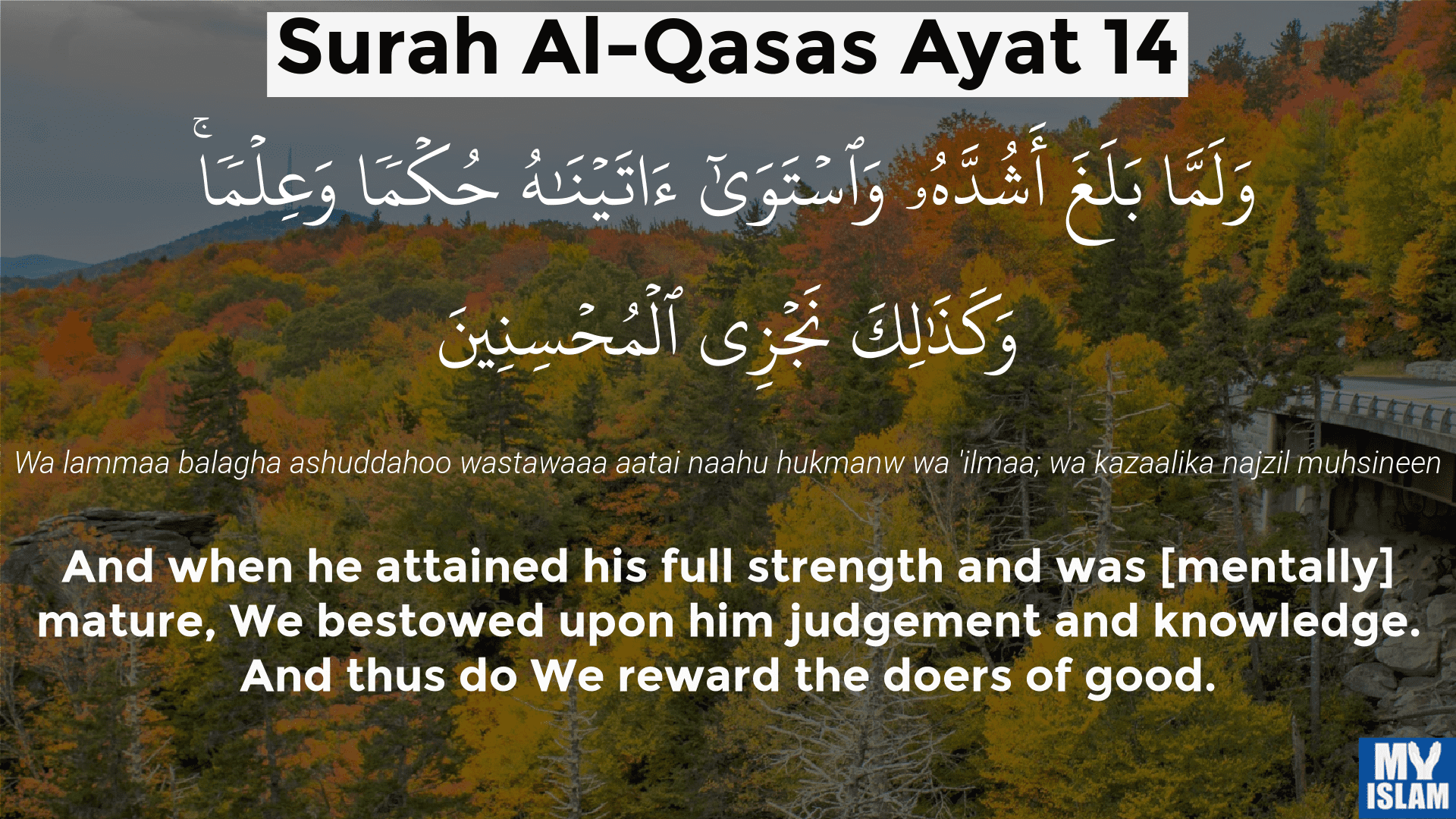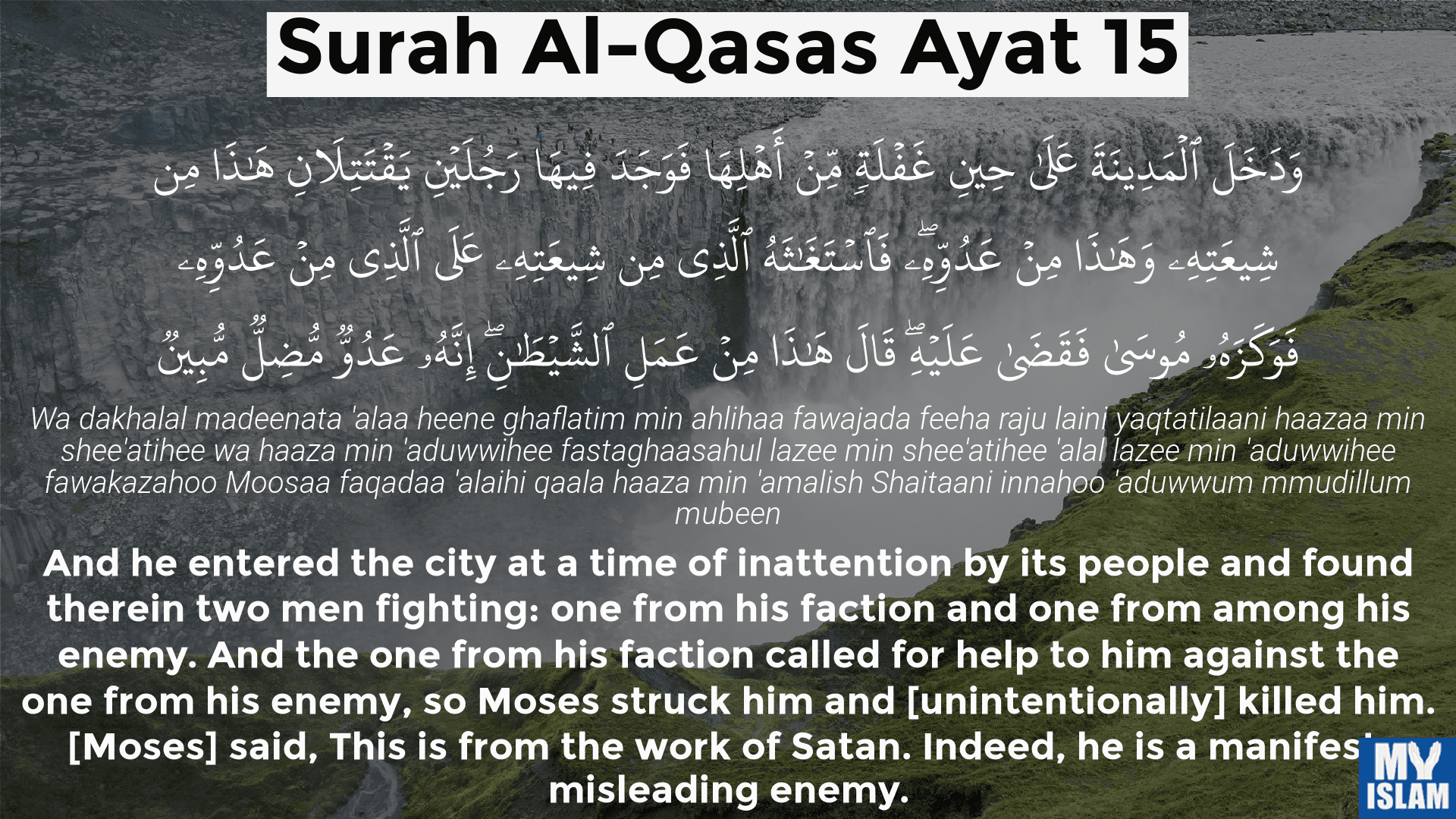Surah Al-Qasas Ayat 13 in Arabic Text
English Translation
Here you can read various translations of verse 13
So We restored him to his mother that she might be content and not grieve and that she would know that the promise of Allah is true. But most of the people do not know.
Thus did We restore him to his mother, that her eye might be comforted, that she might not grieve, and that she might know that the promise of Allah is true: but most of them do not understand.
Thus did We restore Moses to his mother that her eyes might be comforted and she might not grieve, and realise that the promise of Allah was true. But most people are unaware of this.
So did We restore him to his mother, that she might be delighted, and that she might not grieve, and that she might know that the Promise of Allah is true. But most of them know not.
So We restored him to his mother that she might be comforted and not grieve, and that she might know that the promise of Allah is true. But most of them know not.
So We turned him back to his mother so that she might comfort her eye and not grieve, and that she might know that the promise of Allah is true; but most of them do not know.
We restored him to his mother in this way, so that she might be comforted, not grieve, and know that God’s promise is true, though most of them do not know.
پس ہم نے اسے اس کی ماں کی طرف واپس پہنچایا، تاکہ اس کی آنکھیں ٹھنڈی رہیں اور آزرده خاطر نہ ہو اور جان لے کہ اللہ تعالی کا وعده سچا ہے لیکن اکثر لوگ نہیں جانتے
Quran 28 Verse 13 Explanation
For those looking for commentary to help with the understanding of Surah Al-Qasas ayat 13, we’ve provided two Tafseer works below. The first is the tafseer of Abul Ala Maududi, the second is of Ibn Kathir.
Ala-Maududi
(28:13) Thus did We restore Moses[16] to his mother that her eyes might be comforted and she might not grieve, and realise that the promise of Allah was true.[17] But most people are unaware of this.
16. According to the Bible and the Talmud, the child was named “Moses” in Pharaoh’s house. It is not a Hebrew but a Coptic word, which means, “I drew him out of the water”, for in Coptic mo meant water and oshe rescued.
17. Another good thing that resulted from this wise device by Allah was that the Prophet Moses (peace be upon him) could not become a real prince in Pharaoh’s house, but grew up among his own people and became fully aware of his family and community traditions and his ancestral religion. Thus, instead of growing up as a member of Pharaoh’s class and people, he arose sentimentally and intellectually as a full-fledged Israelite.
In a Hadith the Prophet (peace be upon him) has said: “He who works to earn his livelihood and keeps in view Allah’s goodwill also, has a likeness with the Prophet Moses’ (peace be upon him) mother, who suckled her own son as well as received her wages for the service, too.” That is, although such a person works to earn a living for his children, since he works honestly with a view to pleasing God, and he is just and upright in his dealings with others, seeks lawful provisions for himself and his children in the spirit of God’s worship, he does deserve a reward from Allah even for earning his own livelihood.
Ibn-Kathir
The tafsir of Surah Qasas verse 13 by Ibn Kathir is unavailable here.
Please refer to Surah Qasas ayat 10 which provides the complete commentary from verse 10 through 13.
Quick navigation links






